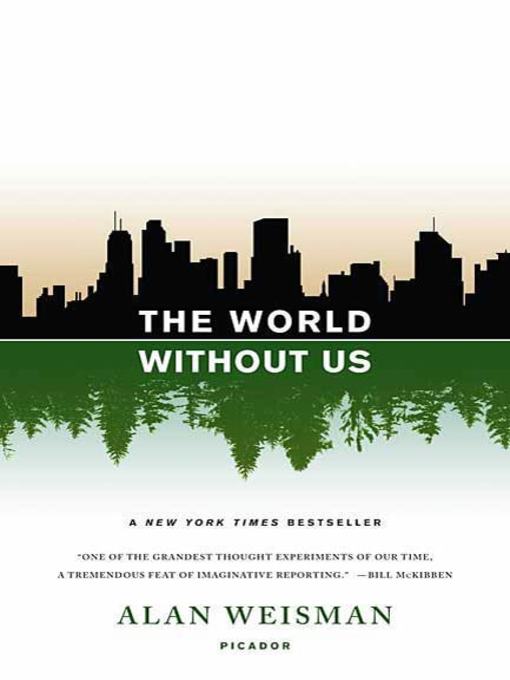
The World Without Us
کتاب های مرتبط
- اطلاعات
- نقد و بررسی
- دیدگاه کاربران
نقد و بررسی

Starred review from May 14, 2007
I
f a virulent virus—or even the Rapture—depopulated Earth overnight, how long before all trace of humankind vanished? That's the provocative, and occasionally puckish, question posed by Weisman (An Echo in My Blood
) in this imaginative hybrid of solid science reporting and morbid speculation. Days after our disappearance, pumps keeping Manhattan's subways dry would fail, tunnels would flood, soil under streets would sluice away and the foundations of towering skyscrapers built to last for centuries would start to crumble. At the other end of the chronological spectrum, anything made of bronze might survive in recognizable form for millions of years—along with one billion pounds of degraded but almost indestructible plastics manufactured since the mid-20th century. Meanwhile, land freed from mankind's environmentally poisonous footprint would quickly reconstitute itself, as in Chernobyl, where animal life has returned after 1986's deadly radiation leak, and in the demilitarized zone between North and South Korea, a refuge since 1953 for the almost-extinct goral mountain goat and Amur leopard. From a patch of primeval forest in Poland to monumental underground villages in Turkey, Weisman's enthralling tour of the world of tomorrow explores what little will remain of ancient times while anticipating, often poetically, what a planet without us would be like.

Starred review from May 15, 2007
Asking "What if" questions has been a proven tool leading to key theories and discoveries in science. The imagined scenario presented here offers a provocative perspective on life on Earth and the degree to which human activity has shaped the planet. If every human on Earth suddenly vanished, what would become of this world? Science journalist Weisman ponders numerous questions, e.g., How long would it take for nature to reclaim dense urban areas, like Manhattan Island? What endangered fauna would recover, and what new species might evolve? What would become of humankind's most enduring pollutants, such as plastics, greenhouse gasses, and nuclear wastes? The book's strength lies in its audacious willingness to confront uncomfortable questions while offering glimpses of answers in areas of recent wars, diseases, and ecological disasters. This is neither a warning to human beings to change their errant ways, nor a wishful paean to returning to the Garden of Eden; instead it is a sober, analytical elucidation of the effects of human dominance on this planet, intriguing if not especially comforting. This book should be broadly read and discussed. For all environmental collections. [Library marketing campaign; see Behind the Book profile on p.112.]Gregg Sapp, Science Lib., SUNY at Albany
Copyright 2007 Library Journal, LLC Used with permission.

Starred review from April 1, 2007
Given the burgeoning human population and the phenomenal reach of our technologies, humankind has literally become a force of nature. We are inadvertently changing the climate; altering, polluting, and eradicating ecosystems; and driving evolution as other organisms struggle to adapt to a new human-made world. So what would happen if humankind suddenly vanished? Journalist Weisman, author of An Echo in My Blood (1999), traveled the world to consult with experts and visit key sites, and his findings are arresting to say the least. He learned that without constant vigilance, New Yorks subways would immediately flood, and Houstons complex "petroscape" would spectacularly self-destruct. Weisman visits an abandoned resort on the coast of Cyprus and marvels over natures ready reclamation. Marine biologists share sobering information about the staggering amount of plastic particles in ocean waters as well as vast floating islands of trash. Weisman is a thoroughly engaging and clarion writer fueled by curiosity and determined to cast light rather than spread despair. His superbly well researched and skillfully crafted stop-you-in-your-tracks report stresses the underappreciated fact that humankinds actions create a ripple effect across the web of life. As for the question of what would endure in our absence, Weisman lists a "redesigned atmosphere," astronomical amounts of plastic and automobile tires, nuclear waste and other inorganic poisons, and, eerily, the radio waves that will carry our television broadcasts through the universe for all time.(Reprinted with permission of Booklist, copyright 2007, American Library Association.)

























دیدگاه کاربران